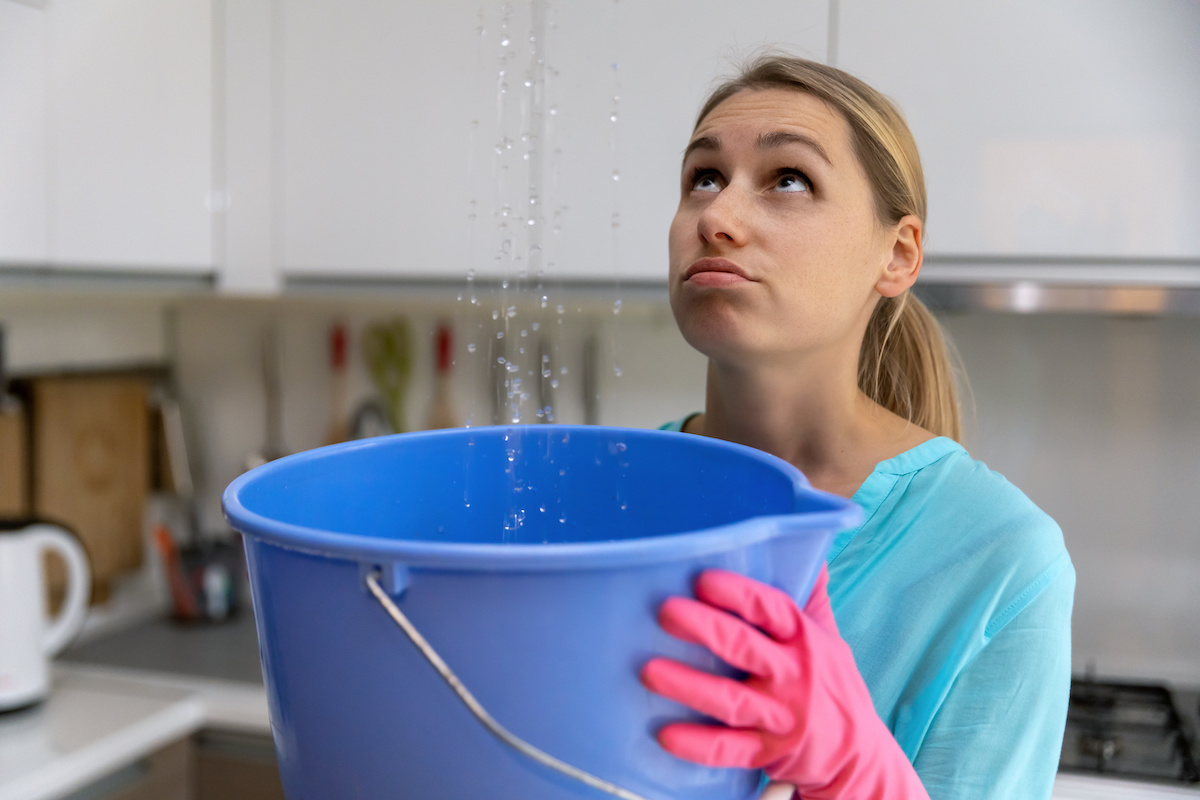Exploring the Primary Reasons for Leakage in The Home
Exploring the Primary Reasons for Leakage in The Home
Blog Article
In this article below you'll find lots of incredibly good ideas pertaining to How to detect water leaks in your home.

Leakages not only create waste of water but can also create unneeded damage to your home and promote undesirable natural development. By understanding and looking for daily scenarios that trigger leaks, you can shield your residence from future leakages and unnecessary damages.
Instantaneous temperature level modifications.
Extreme temperature level modifications in our pipes can create them to broaden as well as contract unexpectedly. This growth and tightening may trigger cracks in the pipelines, especially if the temperature level are below freezing. It would certainly be best if you watched on how your plumbing works. The visibility of the previously mentioned conditions frequently indicates a high risk.
Corroded water supply
This could be the reason of discoloration or bending on your water pipelines. If our plumbing system is old, think about replacing the pipes because they are at a higher danger of deterioration than the more recent models.
Defective Pipe Joints
The point at which your pipelines attach is regularly the weakest link in the waterline. Pipeline joints can weaken with time, resulting in water leaks. The bulk of pipeline joints are not quickly noticeable. If you have noisy pipes that make ticking or banging sounds, particularly when the hot water is turned on, your pipeline joints are possibly under a lot of pressure. It is recommended to have your plumber examine your system annually.
Trespassing roots
Many water leakages start outside your home instead of inside it. If you observe an unexpected reduction in water pressure, say in your faucet, require time to head out as well as examine your yard. You might notice damp patches or sinkholes in your yard, which might mean that tree origins are invading water lines creating water to leak out. You can have your plumber check for breach, especially if you have trees or hedges near your residential or commercial property.
Poor Water Connectors
At times, a leak can be triggered by loose pipes and pipes that provide your devices. Usually, moving is what creates the loose water Links. You might locate in the case of a washing maker, a pipe might spring a leak because of trembling throughout the spin cycle. In case of a water connections leak, you may observe water running straight from the supply line or puddles around your devices.
Clogged Drains
Blocked drains pipes may be bothersome and also inconveniencing, but they can often wind up causing an overflow resulting in break pipelines. Keep removing any type of products that might drop your drains pipes that can clog them to avoid such troubles.
All the above are causes of leakages but not all water leaks result from plumbing leakages; some leakages could originate from roofing leakages. All leaks ought to be repaired instantly to stay clear of water damage.
Leaks not only create waste of water but can additionally cause unneeded damages to your house and advertise undesirable organic growth. By looking and comprehending for day-to-day situations that cause leaks, you can shield your house from future leaks and unneeded damages. Today, we will certainly look at 6 leakage triggers that might be triggering your pipelines to leak.
At times, a leakage can be triggered by loosened hoses and also pipes that supply your devices. In situation of a water connections leak, you may see water running directly from the supply line or pools around your home appliances.
How To Check For Water Leak In Your Home
How To Check for Leaks
The average household's leaks can account for nearly 10,000 gallons of water wasted every year and ten percent of homes have leaks that waste 90 gallons or more per day. Common types of leaks found in the home are worn toilet flappers, dripping faucets, and other leaking valves. These types of leaks are often easy to fix, requiring only a few tools and hardware that can pay for themselves in water savings. Fixing easily corrected household water leaks can save homeowners about 10 percent on their water bills.
To check for leaks in your home, you first need to determine whether you're wasting water and then identify the source of the leak. Here are some tips for finding leaks:
Take a look at your water usage during a colder month, such as January or February. If a family of four exceeds 12,000 gallons per month, there are serious leaks.
Check your water meter before and after a two-hour period when no water is being used. If the meter changes at all, you probably have a leak.
Identify toilet leaks by placing a drop of food coloring in the toilet tank. If any color shows up in the bowl after 10 minutes, you have a leak. (Be sure to flush immediately after the experiment to avoid staining the tank.)
Examine faucet gaskets and pipe fittings for any water on the outside of the pipe to check for surface leaks.
Undetected water leaks can happen without the home or business owner even realizing. If you suspect a water leak, but not able to find the source. It is time to contact a professional water leak detection service, The Leak Doctor.
How To Find a Water Leak In Your Home
https://www.leakdoctor.com/blog/How-To-Check-For-Water-Leak-In-Your-Home_AE197.html

I am very involved in Top Causes of Home Water Leaks and I really hope you enjoyed our blog entry. Liked our entry? Please share it. Help someone else discover it. Many thanks for your time. Visit us again soon.
Schedule Free Estimate Report this page